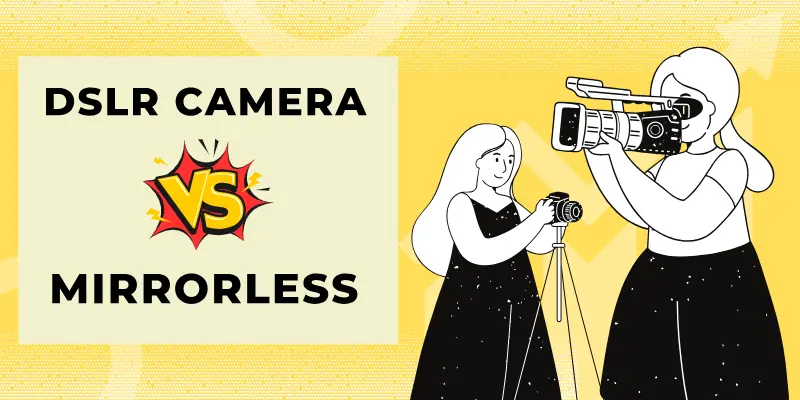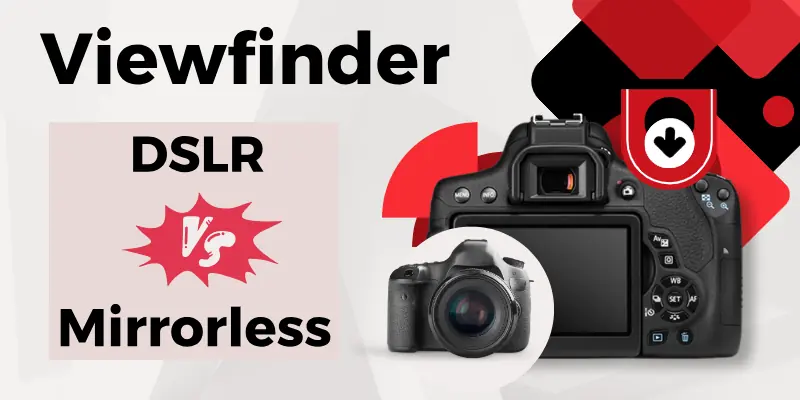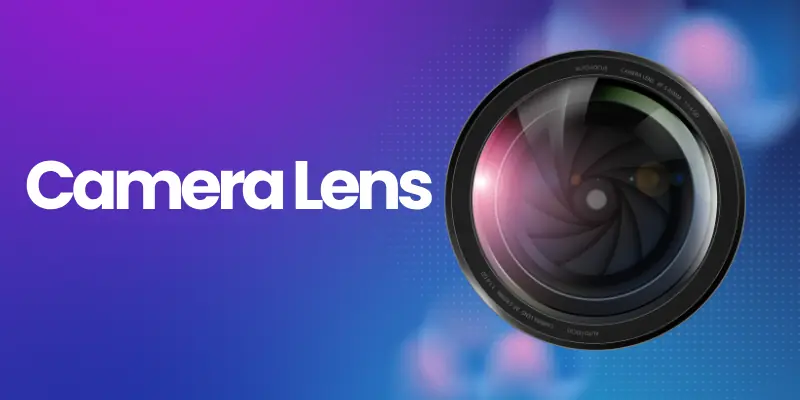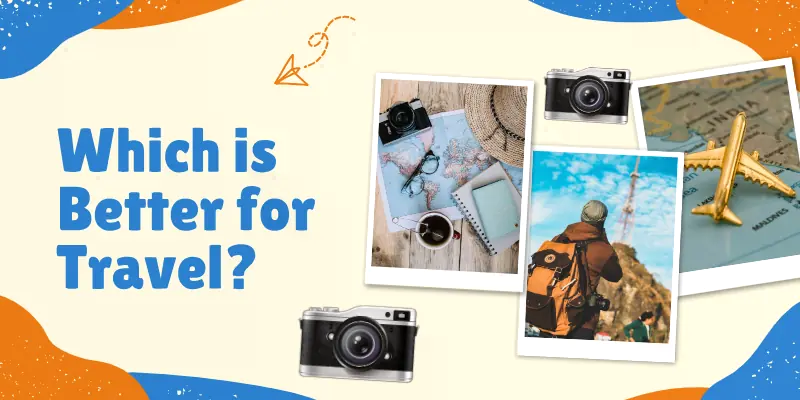DSLR vs Mirrorless Cameras: Which is Better?
Published: 30 Nov 2024
Have you ever wanted to capture a perfect picture of a beautiful sunset, your pet, or a special family moment? There are many types of cameras out there, and two popular ones are DSLR (Digital Single-Lens Reflex) and mirrorless cameras. Both can help you take amazing photos, but they work in different ways.
Let’s explore what makes each of these cameras unique so you can understand which one might be best for you!

Here’s a quick comparison table between the two Cameras’:
| DSLR Camera | Mirrorless Camera |
| A DSLR (Digital Single-Lens Reflex) camera is a type of camera that uses mirrors to capture pictures. | A mirrorless camera, as the name suggests, doesn’t use mirrors. Instead, it captures images directly through an electronic system. |
Key Differences Between DSLR & Mirrorless Cameras
Both types of cameras have unique features that make them different.
Viewfinder: Optical vs Electronic
DSLRs: Use optical viewfinders (OVF). They have a mirror and prism system. When you look through the viewfinder, you see exactly what the lens sees in real time, with no delay.
This system is excellent for providing a natural, lag-free view, making it ideal for situations requiring clarity, like sports photography.

Mirrorless Cameras: Use electronic viewfinders (EVF) or depend on the rear screen. The EVF displays a digital image, showing a real-time preview of your scene as captured by the camera sensor.
This allows for advantages like seeing exposure, white balance, and focus adjustments in real time. However, EVFs may introduce slight lag or drain the battery faster.
Size and Weight
DSLRs: Typically larger and heavier due to the mirror and prism system. Their great design provides a more user friendly grip, which some photographers prefer, especially when using larger lenses for extended shoots.
Mirrorless Cameras: Designed to be smaller and lighter since they lack the mirror device. Their compact size makes them highly portable, perfect for travel or street photography, where discretion and ease of carrying are advantages.
Battery Life
DSLRs: Offer longer battery life due to the lower energy use of their optical viewfinders. They can often shoot 800-1500 shots per charge, making them reliable for long sessions without repeated recharging.
Mirrorless Cameras: Have shorter battery life, typically ranging between 300-500 shots per charge, because EVFs and LCD screens consume more power.
However, new models are improving in this area, and carrying extra batteries can mitigate this limitation.
Lens Options
DSLRs: Have been around longer, offering a wider variety of lenses. From specialized macro lenses to super-telephoto options, the extensive ecosystem of lenses for DSLRs is a big advantage.

Mirrorless Cameras: At the start had few lens options, but mirrorless lens availability is rapidly growing. Many manufacturers offer lens adapters, allowing mirrorless users to attach DSLR lenses, providing versatility during the transition phase.
Ideal Uses
DSLRs: Great for photography enthusiasts and professionals who need reliability and battery life for extended shoots. Perform well in varied lighting conditions and are excellent for still photography like portraits, landscapes, and wildlife.
Mirrorless Cameras: Known for their fast autofocus and superior video capabilities. Ideal for vlogging, action shots, and fast-moving subjects because they sometime offer better continuous shooting rates and focus tracking.
Their real-time preview makes them beginner-friendly for experimenting with different settings.
Advantages of DSLR Cameras
DSLRs have many benefits, making them a popular choice for photographers.
| Advantages |
|---|
|
Disadvantages of DSLR Cameras
While DSLRs have many good qualities, they also have some downsides.
| Drawbacks |
|---|
|
Advantages of Mirrorless Cameras
Mirrorless cameras have gained popularity for several good reasons.
| Benefits |
|---|
|
Disadvantages of Mirrorless Cameras
For all their strengths, mirrorless cameras also have some drawbacks.
| Drawbacks |
|---|
|
Which is Better for Beginners?
Both DSLR and mirrorless cameras have advantages for beginners.
Why Each is Good for Beginners
- DSLR: Easy to hold, offers many options, and has better battery life for long practice sessions.
- Mirrorless: Smaller and lighter, with fast autofocus for quick, beginner-friendly shots.
- Affordable Options: Both have entry-level models that are affordable for beginners.
- Simple Settings: Many beginner models come with easy-to-understand settings and guides.
- Growth Potential: Both types offer features that can help beginners improve their skills over time.
Which is Better for Professional Use?
Professionals might choose one type based on their needs and style.
Why Professionals Choose Each Type
- DSLR: Favored for photography due to its optical viewfinder and reliable performance.
- Mirrorless: Popular between videographers and for fast-moving subjects, thanks to fast autofocus.
- More Lenses for DSLRs: Professionals might prefer DSLRs for access to a huge range of lenses.
- Mirrorless for Portability: Easier to carry multiple mirrorless cameras for events and travel.
- Specialized Features: High-end mirrorless cameras offer advanced features like silent shooting and in-body stabilization.

Which is Better for Travel?
For travel, one might be better than the other based on weight and ease of use.
Why Each is Good for Travel
- Mirrorless: Compact and lightweight, making it easier to carry around all day.
- DSLR: May offer better battery life for longer trips without charging.
- Quiet Operation with Mirrorless: Great for capturing shots in quiet locations without drawing attention.
- Wide Lens Choice with DSLR: Gives more options for different types of travel photos.
- Fast Setup with Mirrorless: Quick autofocus helps capture natural moments while traveling.
Choose the Right Camera Based on Photography Style
Your preferred photography style can help you decide which camera is right for you.
Styles and Camera Types
- Portraits: DSLRs offer excellent lens options for beautiful portraits.
- Sports and Action: Mirrorless cameras are great for fast focus and capturing motion.
- Nature and Landscapes: DSLRs sometime provide rich details and depth for nature photography.
- Street Photography: Mirrorless cameras, being smaller, are less noticeable for natural shots.
- Video Filming: Mirrorless cameras are generally better for video due to their faster autofocus.
Conclusion
Both DSLR and mirrorless cameras are amazing tools for photography, each with its strengths and weaknesses. DSLRs offer a more traditional experience with an optical viewfinder, longer battery life, and a wider range of lenses.
Mirrorless cameras are lighter, faster, and often better for video, making them a great choice for action shots or travel. The best choice depends on what you need the camera for and your personal preferences. So whether you choose a DSLR or a mirrorless camera, you’ll be able to capture beautiful memories!
FAQs about DSLR & Mirrorless Cameras:
Here are some of the FAQs related to DSLR & Mirrorless Cameras:
DSLRs use mirrors to reflect the image, while mirrorless cameras don’t, making them quieter and lighter.
Both are beginner-friendly, but mirrorless cameras are lighter and easier to handle for new users.
Yes, they generally perform better in video mode with faster autofocus and smoother recording.
Yes, DSLRs usually last longer on a single charge because they have fewer electronic parts.
DSLRs have more lens options, but mirrorless lens choices are expanding quickly.
Yes, mirrorless cameras are ideal for fast-moving subjects due to their quick autofocus.
Yes, the mirror inside DSLRs creates a clicking sound, which some users enjoy.
Mirrorless cameras are usually more compact and lightweight, making them easy to carry on trips.
Absolutely! Both can capture detailed and stunning photos, depending on the model.
It depends on the brand and model, but high-end mirrorless cameras can be pricey.

- Be Respectful
- Stay Relevant
- Stay Positive
- True Feedback
- Encourage Discussion
- Avoid Spamming
- No Fake News
- Don't Copy-Paste
- No Personal Attacks

- Be Respectful
- Stay Relevant
- Stay Positive
- True Feedback
- Encourage Discussion
- Avoid Spamming
- No Fake News
- Don't Copy-Paste
- No Personal Attacks





